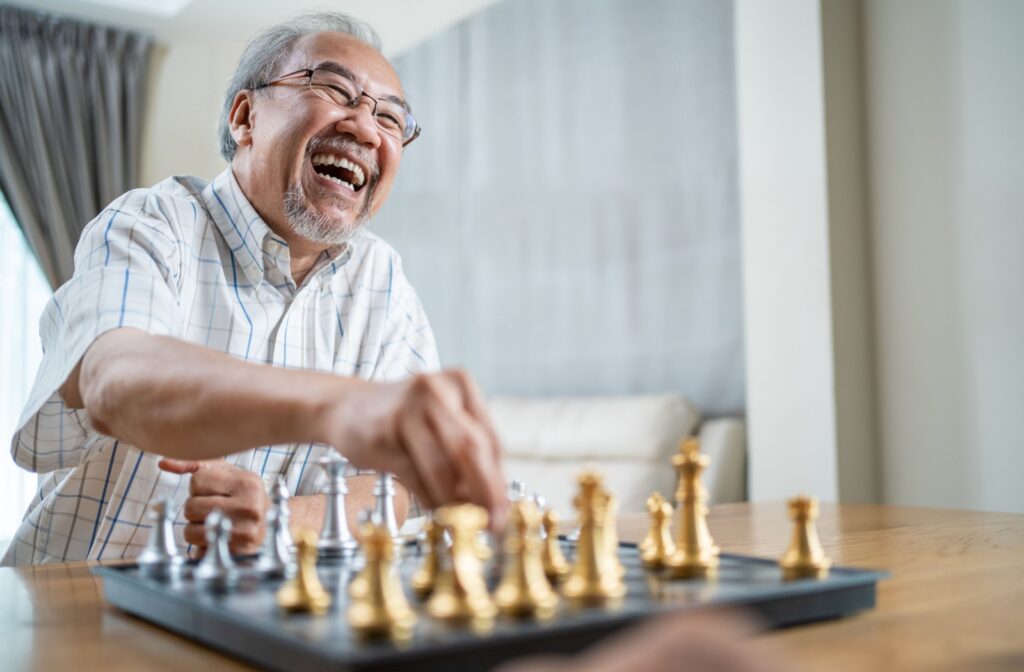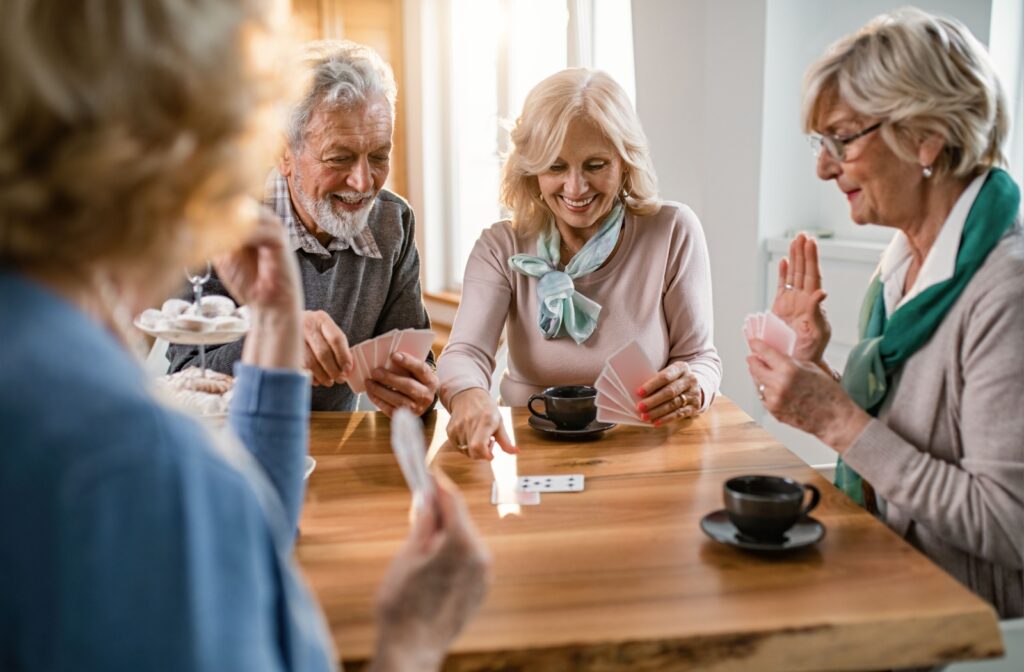Maintaining cognitive abilities and working memory is essential to staying independent. And fortunately, preserving them is often easier than most people think. With some simple changes, you can support your loved one on their journey to a healthier mind and body.
While aging may bring some cognitive challenges, mental decline isn’t inevitable. Through a mix of games, mental challenges, and learning, your loved one can work towards improving their working memory and mental abilities.
How Games Sharpen the Mind
Engaging in brain games activates key areas of the brain. Specifically, it helps the areas responsible for memory storage, decision-making, and complex thinking.
Through brain games, seniors can benefit from neuroplasticity—the brain’s ability to form new neural pathways. This boosts working memory and strengthens problem-solving abilities and attention spans.
While no activities can fully prevent cognitive decline, small changes can affect the progression of memory-related challenges. Support from family, a healthy lifestyle, and mental engagement are all essential steps of preventive care.
What Are Cognitive Games?
Cognitive games provide a fun and interactive way to challenge the brain. They encourage problem-solving, creative thinking, and information processing in ways that keep seniors engaged.
These games can take many forms, including:
- Word puzzles, such as crosswords or word searches
- Memory card games
- Sudoku or number puzzles
- Strategy games like chess or checkers
- Trivia quizzes with general or specific themes
With regular practice, brain games can build stronger neural connections, just like how physical exercise strengthens muscles.
Solo & Group Activities for Mental Stimulation
Both individual and group activities can help seniors improve their mental sharpness. Solo games create a quiet space for focus and independence while reinforcing problem-solving skills. On the other hand, group activities provide a way to connect with others.
Either way, these games promote critical thinking and encourage emotional well-being, helping seniors form relationships while keeping their brains active.
Each approach has its benefits, so alternating between solo and group activities can provide a well-rounded cognitive workout.
Classic Board Games That Boost Brain Health
Board games are a timeless way to stimulate the mind while spending quality time together. Chess, checkers, and card games encourage players to strategize and anticipate opponents’ moves, which supports critical thinking.
These games also improve memory! Your loved one needs to recall previous outcomes to make informed decisions in future rounds. The social aspect of playing board games further boosts mental health, as it combats isolation and strengthens relationships.
Word & Logic Games for Cognitive Growth
Games like crossword puzzles and Sudoku are equally helpful. They give seniors an opportunity to exercise both verbal reasoning and logical thinking. Crosswords are great for building vocabulary, general knowledge, and memory retention. Meanwhile, Sudoku adds variety to cognitive workouts by enhancing pattern recognition and logical processes.
For family members, encouraging these word and logic games can be helpful. They’re a simple, accessible way to help older loved ones stay sharp while enjoying themselves.

Visual Puzzles for Memory & Focus
Jigsaw puzzles offer a fantastic way to promote mental activity. Completing them requires spatial awareness, critical thinking, and an ability to focus for extended periods.
Sorting puzzle pieces by size, shape, or color also encourages organizational skills, making jigsaws an enriching brain exercise. Not to mention, finishing a puzzle together can be a fulfilling bonding activity for families. They’re a simple but effective way to preserve working memory.
Language Learning as a Brain Workout
Learning something new is a wonderful way to keep the brain active. This means that picking up a new skill, like learning a new language, can be extremely effective.
The process of memorizing vocabulary, understanding grammar, and forming sentences engages multiple cognitive functions. These include memory retention and cognitive flexibility, which are important for maintaining sharp thinking skills.
The Role of Structured Care in Supporting Memory
Engaging in activities at home is helpful. It’s an incredible way to help your loved one steadily improve their working memory and cognitive abilities.
However, a structured environment in senior living can be even better. Communities like ours offer plenty of additional opportunities for consistent, tailored mental stimulation. There are programs, all specifically designed to bring new benefits to your loved one, tailored to guiding residents along this journey.
An early move to senior living can make all the difference. It’s a meaningful step that can truly benefit your loved one.
Supporting Cognitive Health for a Loved One
Games, puzzles, and learning opportunities are wonderful tools. They’re extremely effective in helping seniors maintain their working memory and cognitive abilities. Family support combined with an engaging lifestyle can make a real difference in their quality of life.
That’s why our team at Parsons House Cypress offers so many different activities and events to help your loved one every day. Here, there’s always something engaging going on. Contact us today, or schedule a tour to see for yourself! Your loved one’s future home could be waiting.


